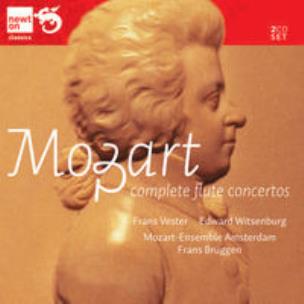- Regulamin
- Koszty dostawy
- Kontakt
- Dziś w ofercie 236 407 produktów
KSIĄŻKI
- Albumy
- Beletrystyka
- Biografie
- Dla dzieci i młodzieży
- Edukacja
- Ekonomia i biznes
- Ezoteryka
- Historia
- Informatyka
- Kalendarze
- Komiksy
- Kryminał i sensacja
- Kultura i sztuka
- Literatura faktu
- Literatura kobieca
- Literatura piękna
- Medycyna
- Nauka języków obcych
- Nauki humanistyczne
- Nauki przyrodnicze
- Nauki ścisłe
- Podręczniki
- Poradniki
- Prawo i administracja
- Przewodniki i podróże
- Psychologia
- Religia
- Sport
- Technika
- Zdrowie i uroda
ZABAWKI
- Artykuły dla niemowląt
- Bączki
- Bujaki i skoczki
- Ciągnij / pchaj
- Dla niemowlaka
- Grzechotki i gryzaki
- Karuzele i pozytywki
- Maty i centra zabaw
- Projektory i lampki
- Sortery i piramidki
- Zabawki
- Edukacyjne i kreatywne
- Figurki
- Klocki
- Lalki
- Pojazdy
- Pluszaki i maskotki
- Sport i rekreacja
- Zabawa w dom
- Zabawki drewniane
- Puzzle
- Do 200 elementów
- 201-500 elementów
- 501-1000 elementów
- Ponad 1000 elementów
- Puzzle 3D
ART. PAP
- Artykuły biurowe
- Artykuły piśmiennicze
- Bloczki i kartki samoprzylepne
- Dziurkacze
- Kalkulatory
- Nożyczki i nożyki
- Skoroszyty
- Teczki
- Wizytowniki
- Zszywacze
- Artykuły szkolne
- Akcesoria szkolne
- Modelowanie
- Notatniki i zeszyty
- Piórniki
- Plecaki i torby
- Pojemniki na śniadanie
- Pomoce naukowe
- Przybory matematyczne
- Przybory rysunkowe
- Upominki i gadżety
- Akcesoria do książek
- Artykuły balowe
- Breloki i zawieszki
- Drobiazgi, różności
- Kubki
- Oferta Świąteczna
- Papeteria, kartki i naklejki
- Skarpetki Many Mornings
- Upominki
GRY
MULTIMEDIA
- Audiobooki
- Beletrystyka
- Biografie i wspomnienia
- Dla dzieci i młodzieży
- Fantastyka
- Filozofia i religia
- Historia
- Literatura faktu i reportaż
- Poradniki
- Sensacja i kryminał
- Filmy DVD/BD
- Animowane
- Biograficzne
- Fantasy
- Horrory
- Komedie
- Romanse
- Science Fiction
- Sensacyjne / kino akcji
- Thrillery
- Muzyka CD
- Alternatywna
- Blues
- Dla dzieci
- Jazz
- Klasyczna
- Piosenka aktorska i poetycka
- Pop
- Rock
- Świąteczna i kolędy
- Akcesoria GSM
- Głośniki
- Kable i adaptery
- Klawiatury
- Myszy
- Słuchawki
PROMOCJE
ZDROWIE
LEGO

Mozart: Complete Flute Concertos
Wydawca:
Newton Classics
EAN:
8718247711529
oprawa:
Plastikowa
czas trwania:
1:29:22
format:
14.0x12.0cm
język:
angielski
rok wydania:
2014
(0) Sprawdź recenzje
Opis produktu
Zasady bezpieczeństwa
An understanding has been passed down to us that Mozart had a somewhat jaundiced view of the flute, that he had not the inclination to lavish upon it the love and care and idiomatic poetry which give rise to the concertos for clarinet and horn and the wind parts of the operas and piano concertos. But, as Graham Rogers points out in his note, the evidence for this misunderstanding is at best circumstantial. When we listen to these concertos and fragments, we find solo parts every bit as quintessentially Mozartian as those cited above. They may not rival the piano concertos of his mature Vienna years, but they are masterpieces in their way, and are indeed the best of their kind.
Best of all is the concertante piece he wrote for a wealthy French count and his harp-playing daughter. From the ceremonial C major first movement, through the gracefully fluent triple-time Andantino, to the joyous bustling finale, the music’s cloth is cut peerlessly to the technical possibilities and individual timbres of both instruments.
These 1972 recordings were made by the cream of the Dutch early music movement, led by one of its alma parens, Frans Brüggen. They date from a time when early-music values of transparency, buoyancy and lightness of touch and tone were just beginning to filter through to performances of music from the Classical era, and they stand the test of time.
1. Andante in C K315 6’41
Concerto in C K299 for flute and harp
2. I. Allegro 10’41
3. II. Andantino 8’19
4. III. Rondeau: Allegro 11’40
Total Time: 37'21
CD 2:
Rondo in D K. Anh.184
1. Allegretto grazioso 6’10
Concerto in G K313
2. I. Allegro maestoso 8’22
3. II. Adagio ma non troppo 9’27
4. III. Rondeau: Tempo di Minuetto 7’59
Concerto in D K314
5. I. Allegro aperto 7’25
6. II. Andante ma non troppo 6’39
7. III. Allegro 5’59
Total Time: 52'01
Wykonawcy: Frans Vester (Fluit)
Edward Witsenberg (Harp)
CENA:
41,82
zł
Cena detaliczna:
55,99 zł
25%
rabatu
Najniższa cena z ostatnich 30 dni: 41,94 zł
Produkt niedostępny
Uwaga!!!
Ten produkt jest zapowiedzią. Realizacja Twojego zamówienia ulegnie przez to wydłużeniu do czasu premiery tej pozycji. Czy chcesz dodać ten produkt do koszyka?


Wybierz wariant produktu
